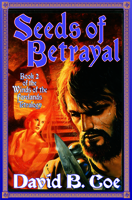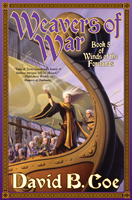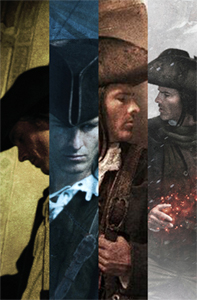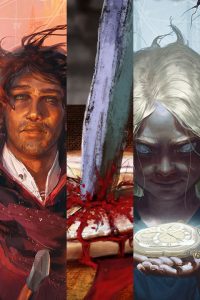Early in the year — even before the pandemic hit — I wrote a post in which I basically said that all writers should read. There are certain “rules” about the profession that are actually negotiable — writers don’t really HAVE to write every day; we don’t HAVE to outline our books to be successful; some people like to write to music while others need absolute silence.
The reading thing, however, as I said at the time, is about as close to an ironclad rule as I can think of. If we want to learn the tropes of whatever genre we write in, we have to read. If we want to learn the craft of storytelling, and continue to hone that skill over a lifetime, we have to read. If we want to be informed and culturally literate citizens of the world, we have to read.
But what should we read? As an author with many friends in the business, I find that making recommendations can be tricky. I don’t wish to insult any of my colleagues with sins of omission. But there are certain books that I have read and not only enjoyed, but learned from. That’s what I’m after in this post. The following books have taught me something about narrative, about conveying story and emotion, about crafting prose. There are some unusual, even quirky, choices here. That comes with the prerogative of writing on my own blog. I hope you find this list helpful, informative, even inspirational.
In no particular order…
The Fifth Season, by N.K. Jemisin. Okay, for starters, it’s just a great book and the start of a remarkable series, a deserving winner of the Hugo (which was actually awarded to all three books in the Broken Earth Trilogy). Her plotting is fabulous, her use of point of view innovative and striking. Jemisin has since been awarded a MacArthur Genius Grant. So, yeah, she basically rocks.
Slow River, by Nicola Griffith. This is an older novel, the 1996 winner of both the Nebula Award and the Lambda Literary Award. It’s a great story, and it makes use of point of view and voice so beautifully that I have used it for teaching on several occasions. Basically she uses three different voices for a single character, each representing different moments in her life. Brilliant.
The Lions of Al-Rassan, by Guy Gavriel Kay. Kay is probably my favorite fantasy writer, and in recent years he has become a good friend, so I’m bending my own rule here, including the work of someone I know well. But I was a fanboy way before we became friends, so… He does a lot of things very well in all his books, but the world building in this particular book is breathtaking. He borrows extensively from history — he does in most of his books — but he also constructs his worlds with the care and skill of a watchmaker.
A Wizard of Earthsea, by Ursula K. Le Guin. The entire Earthsea Trilogy is one of my all-time favorite works of fiction, but this first volume especially is masterful. It’s a relatively short work, and originally received less attention than it deserved because it was classified, somewhat patronizingly, as “children’s literature.” The worldbuilding is gorgeous, the storytelling simultaneously spare and rich, the prose understated but flawless. Even if you’ve read it, give it another look
Angle of Repose, by Wallace Stegner. The first of a couple of non-genre novels. Stegner was not only a terrific writer, but also a passionate, outspoken environmentalist and a chronicler, through his fiction, of the development of the American West. In 1972, Angle of Repose won the Pulitzer Prize for Fiction. It is a master class in narrative. He basically tells two stories at once, one set in the present, one in the past. He blends them beautifully. And his prose is golden.
Animal Dreams, by Barbara Kingsolver. Another exquisitely written novel of the American West. Kingsolver weaves together multiple narratives and employs several different points of view to tell her tale. It’s moving, sad, uplifting. Actually, writing about it makes me want to read it again…
Adventures in the Screen Trade, by William Goldman. William Goldman wrote The Princess Bride, and then adapted the novel for the screen. He wrote the scripts for Butch Cassidy and the Sundance Kid and All the President’s Men. He wrote Marathon Man, and then adapted it to the screen. And he wrote or adapted scripts for about twenty other movies you’ve heard of. In 1983, he published Adventures, which is part tell-all, part how-to. You don’t have to be an aspiring screen writer to learn from it. It is a treatise on creativity and the business of creation. It’s also entertaining as hell.
Five Seasons, by Roger Angell. Okay, this is, admittedly, a VERY quirky choice, but bear with me. Roger Angell, who recently turned 100 years old, is quite possibly the greatest baseball writer who has ever lived. He wrote regularly for The New Yorker from the 1960s through the first decade of this millennium. He has several collections of baseball essays, and Five Seasons is my personal favorite. But if you’re a baseball fan, you can’t go wrong with any of them — The Summer Game, Late Innings, Season Ticket, Once More Around the Park, Game Time. They’re all amazing. His descriptions of the game and the people he encounters are strikingly original and incredibly evocative. Even if you DON’T like baseball, you could learn from his work.
The Windup Girl, by Paolo Bacigalupi. Back to genre stuff for a moment. The Windup Girl won the Hugo and Nebula Awards in 2010, and it deserved them, along with every other honor it received. Terrific storytelling, powerful prose, mind-bending world building. This is the whole package.
Any collection of Nathaniel Hawthorne’s short fiction. Another quirky choice. Hawthorne is, I believe, one of the more underrated of American writers. He was writing speculative fiction a century before anyone knew what the hell that was. His stories are haunting, strange, and memorable. “Rappaccini’s Daughter” might be my favorite short story. By anyone. Ever.
And with that, I’ll end.
Except to say, as I did back in February, that to be a writer is, by necessity, to be a reader as well. That is one of the joys what we do.
So keep writing, and keep reading.










 For the Winds of the Forelands series (Rules of Ascension, Seeds of Betrayal, Bonds of Vengeance, Shapers of Darkness, Weavers of War) , I created what is without a doubt the most complex “calendar” I’ve ever undertaken for any project. For those of you not familiar with the world, I’ll give a very brief description. The world has two moons, Ilias and Panya, the Lovers, who chase each other across the sky. Each turn (month) has one night when both moons are full (the Night of Two Moons) and one night when both moons are dark (Pitch Night). Each turn is also named for a god or goddess, and so each Night of Two Moons and each Pitch Night has a special meaning.
For the Winds of the Forelands series (Rules of Ascension, Seeds of Betrayal, Bonds of Vengeance, Shapers of Darkness, Weavers of War) , I created what is without a doubt the most complex “calendar” I’ve ever undertaken for any project. For those of you not familiar with the world, I’ll give a very brief description. The world has two moons, Ilias and Panya, the Lovers, who chase each other across the sky. Each turn (month) has one night when both moons are full (the Night of Two Moons) and one night when both moons are dark (Pitch Night). Each turn is also named for a god or goddess, and so each Night of Two Moons and each Pitch Night has a special meaning. I did something similar for the Islevale Cycle novels (Time’s Children, Time’s Demon, Time’s Assassin). In this world there are two primary deities, Kheraya (female) and Sipar (male), and the calendar is structured around them. It begins with the spring equinox — Kheraya’s Emergence, a day and night of enhanced magickal power and sensuality. The spring months are known as Kheraya’s Stirring, Kheraya’s Waking, Kheraya’s Ascent. The summer solstice is called Kheraya Ascendent, a day of feasts, celebration, and gift-giving. This is followed by the hot months of summer: Kheraya’s Descent, Fading, and Settling.
I did something similar for the Islevale Cycle novels (Time’s Children, Time’s Demon, Time’s Assassin). In this world there are two primary deities, Kheraya (female) and Sipar (male), and the calendar is structured around them. It begins with the spring equinox — Kheraya’s Emergence, a day and night of enhanced magickal power and sensuality. The spring months are known as Kheraya’s Stirring, Kheraya’s Waking, Kheraya’s Ascent. The summer solstice is called Kheraya Ascendent, a day of feasts, celebration, and gift-giving. This is followed by the hot months of summer: Kheraya’s Descent, Fading, and Settling. Then there are people like me. Some books, I outline in a good deal of detail. The Thieftaker novels demand preparation of this sort because I am tying together fictional and historical timelines, trying to make my story meld with established events. The Islevale books — time-travel epic fantasies — should have demanded similar planning. But for reasons I still have not fully grasped, all three books defied my efforts to outline. I simply couldn’t plot the books ahead of time. I tried for months (literally) to outline the first book, Time’s Children, and finally my wife said, “Maybe you just need to write it.”
Then there are people like me. Some books, I outline in a good deal of detail. The Thieftaker novels demand preparation of this sort because I am tying together fictional and historical timelines, trying to make my story meld with established events. The Islevale books — time-travel epic fantasies — should have demanded similar planning. But for reasons I still have not fully grasped, all three books defied my efforts to outline. I simply couldn’t plot the books ahead of time. I tried for months (literally) to outline the first book, Time’s Children, and finally my wife said, “Maybe you just need to write it.”  That’s what I did, and the result was a first draft that needed extensive reworking. When I began book II, Time’s Demon, I ran into the same problem. I didn’t even try to outline Time’s Assassin, the third and final volume. I knew it would be a waste of time. All three books needed extensive editing, more than I usually need to do. But they wound up being far and away the finest books I’ve written.
That’s what I did, and the result was a first draft that needed extensive reworking. When I began book II, Time’s Demon, I ran into the same problem. I didn’t even try to outline Time’s Assassin, the third and final volume. I knew it would be a waste of time. All three books needed extensive editing, more than I usually need to do. But they wound up being far and away the finest books I’ve written. The second book, in contrast, was very much a product of its time, and I mean that in a couple of ways. In that book, The Outlanders, my heroes, Jaryd and Alayna are building a life together and starting a family, just as Nancy and I were starting our own family. When writing in book III, Eagle-Sage, about their young daughter, I drew extensively on our experience raising our first child. And in book II, when Niall lost his wife to cancer, I drew upon the experience of watching my father deal with my mother’s death.
The second book, in contrast, was very much a product of its time, and I mean that in a couple of ways. In that book, The Outlanders, my heroes, Jaryd and Alayna are building a life together and starting a family, just as Nancy and I were starting our own family. When writing in book III, Eagle-Sage, about their young daughter, I drew extensively on our experience raising our first child. And in book II, when Niall lost his wife to cancer, I drew upon the experience of watching my father deal with my mother’s death. I was still working on the second book, Seeds of Betrayal, when the 9/11 attacks took place, and I wrote books three, four, and five against the backdrop of the Patriot Act, the torture of terrorism suspects, the illegal imprisonment of suspects at Guantanamo, and the deep anti-Islam sentiments of the early and mid-2000s. The Qirsi conspiracy was part of my plan for the series all along, but by the time the books were done, I realized that, without intending to, I had written a post-9/11 allegory. Again, I didn’t go back and change anything. I chose to keep the books as they developed. But I will admit to having been caught off guard by the degree to which our world had intruded upon my concept for the books.
I was still working on the second book, Seeds of Betrayal, when the 9/11 attacks took place, and I wrote books three, four, and five against the backdrop of the Patriot Act, the torture of terrorism suspects, the illegal imprisonment of suspects at Guantanamo, and the deep anti-Islam sentiments of the early and mid-2000s. The Qirsi conspiracy was part of my plan for the series all along, but by the time the books were done, I realized that, without intending to, I had written a post-9/11 allegory. Again, I didn’t go back and change anything. I chose to keep the books as they developed. But I will admit to having been caught off guard by the degree to which our world had intruded upon my concept for the books.